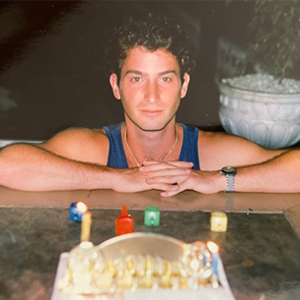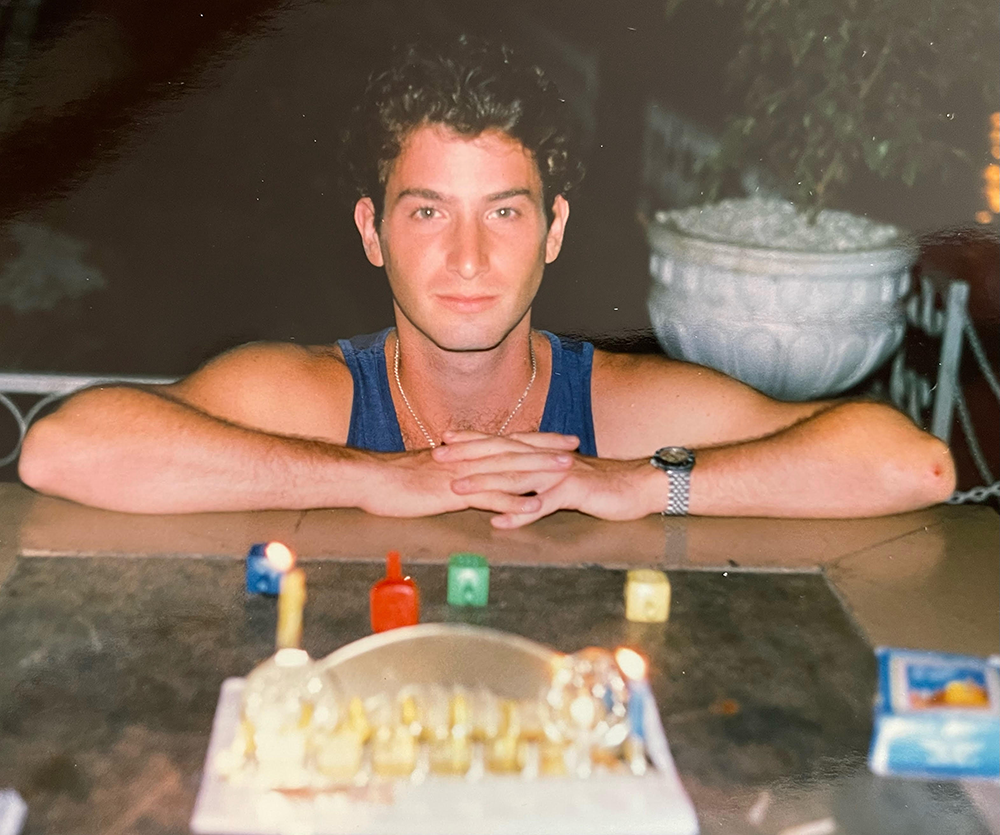 An RPCV shares how his Jewish heritage and the traditions of Hanukkah helped nurture camaraderie and memorable bonds between him and the community he served as a Volunteer in Costa Rica.
An RPCV shares how his Jewish heritage and the traditions of Hanukkah helped nurture camaraderie and memorable bonds between him and the community he served as a Volunteer in Costa Rica.
By Joel Rubin (Costa Rica 1994–96)
We’re now in the holiday season, including the Jewish holiday of Hanukkah. This holiday has always been special to me because it spiritually connects the Jews of today to the Jews of 2,200 years ago, when we fought to maintain our identity and community.
When I joined the Peace Corps, I knew that I’d be going to a distant country to live in a community where I could do productive work. I also knew that my identity as an American would be challenged in ways that I couldn’t predict. But what I didn’t know was that my Peace Corps experience would transcend the professional tasks at hand and my American identity, crossing over into religious connections much deeper under the surface. This meant that while I was on the surface an American volunteer in a Costa Rican village teaching environmental education, just underneath it, I was a Jewish man representing my people in a fully Christian community.
By being open with them, I wasn’t just sharing information; I was creating a bond based in trust in the truest spirit of the Peace Corps.
I felt a special responsibility and need to share this part of me with my host family and the community within which I served, so they could learn about and understand me and my religion, because it’s the lack of understanding and of knowledge that creates distrust and pain. By being open with them, I wasn’t just sharing information; I was creating a bond based in trust in the truest spirit of the Peace Corps. This is because through shared trust, one can truly engage in meaningful service, which was why I chose to live there — and my village embraced me because of it.
Some of my most interesting times in Costa Rica were when I would discuss religion with the local Catholic priest. Or when an evangelical leader would come by to ask me questions about Israel. Or when my village family would invite me to go to church to celebrate a holiday, understanding that religious ritual had meaning for me. Their curiosity about my religion gave me a chance to go deeper into mine, so that I could truly explain the connections and similarities — as well as differences — between us.
But not only was the village an amazing place to be Jewish, so was the country’s capital of San Jose, where a small Jewish community had taken root just prior to the Holocaust, emigrating primarily from Poland in the 1930s. In fact, Jews fled Europe at that time, anticipating the horrors to come, and many thousands ended up in Latin America because the United States, in the midst of antisemitic refugee quotas, blocked those European Jews from entering the country.
But not Costa Rica. This fully Christian country welcomed Polish Jews, giving them a safe place to call home. And these Jews gave back, perfecting the craft of selling garments door to door when they arrived, earning them the nickname “polacos,” which is Spanish for “Polish” and is what door-to-door salespeople are still called in Costa Rica to this day. Since then, Costa Rica has had a female Jewish Vice President and a Jewish Ambassador to the U.S., showing how the country has truly treated Jews as equals.

Joel Rubin during his service in Costa Rica
While in San Jose, I connected with this community, and it became a sort of second home in the country for me. I would travel to San Jose for Peace Corps meetings and stay at the home of a local Jewish family, have Shabbat (Sabbath) dinner with them, and go to the local synagogue. I spent a Passover seder there, speaking three languages — Spanish, English, and Hebrew — at the table. This was my Jewish experience in Costa Rica — not just in the village, but in the capital as well.
Because of this Costa Rican openness, I opened my doors during Jewish holidays to share Jewish celebrations like Hanukkah with my friends in the village. My friends were excited, participated, asked questions, and loved it. I would explain the meaning of the holiday and hold the ceremony of candle lighting, which makes Hanukkah so recognizable and powerful. I also gave them each the opportunity to light a candle, symbolizing the light of the Menorah that lasted for eight days when the Jews of the day, during Greek times, cleaned up the Temple after it had been desecrated. This small act served to remind us of the Hanukkah miracle and bonded us.
Hanukkah is a holiday of celebration for Jews around the world, and in the case of my experience as a Jewish Peace Corps Volunteer in a Christian village in Costa Rica, it provided me with a moment to truly savor liberation, partnership, and equality with my friends in my new home. My religion, despite being different, helped to bring me closer to peace with this village, through the extraordinary creation of the Peace Corps — a Hanukkah miracle worth celebrating.
SHARE YOUR STORY
Do you have a memorable Hanukkah story from your Peace Corps service? Share your experience with us by leaving a comment below.
Joel Rubin is Vice President for Global Policy and Public Affairs at National Peace Corps Association. He served as an Environmental Education Volunteer in Costa Rica (1994–96).